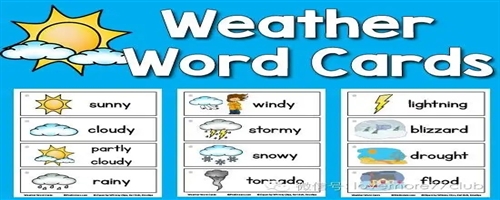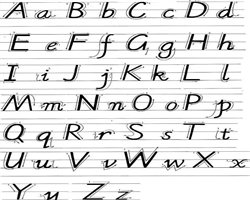Differences between American and British English
Differences in vocabulary
When it comes to vocabulary, American English differ significantly from British English. Sometimes the same word has different meaning. There are also different words with the same meaning. A few examples are given below.
American English
British English
Airplane
Aeroplane
Apartment
Flat/ apartment
Area code
Dialling code
Attorney, lawyer
Barrister, solicitor
Busy
Engaged (phone)
Cab/taxi
Taxi
Can
Tin
Candy
Sweets
Check/bill
Bill
Cookie, cracker
Biscuit
Corn
Maize
Crib
Cot
Crazy
Mad
Diaper
Nappy
Dumb, stupid
Stupid
Elevator
Lift
Eraser
Rubber, eraser
Fall, autumn
Autumn
Faucet, tap
Tap
First floor, second floor
Ground floor, first floor
Flashlight
Torch
French fries
Chips
Garbage, trash
Rubbish
Garbage can, trashcan
Dustbin, rubbish bin
Gas, gasoline
Petrol
Highway, freeway
Main road, motorway
Hood
Bonnet
Intersection
Crossroads
Mad
Angry
Post
Mean
Nasty
Movie, film
Film
Pants, trousers
Trousers
Pavement
Road surface
Pitcher
Jug
Potato chips
Crisps
Purse
Handbag
Raise
Rise (salary)
Railroad
Railway
Rest room
Public toilet
Schedule, timetable
Timetable
Sneakers
Trainers (sports shoes)
Stand in line
Queue
Stingy
Mean
Store, shop
Shop
Subway
Underground
Truck
Van, lorry
Trunk
Boot (of a car)
Stand in line
Queue
Two weeks
Fortnight, two weeks
Vacation
Holiday(s)
Windshield
Windscreen
Zee
Zed
Stand in line
Queue
Zipper
Zip
Difference between American and British English
Differences in usage
Abbreviations
We usually write abbreviations without full stops in modern British English. Full stops (US 憄eriods�) are normal in American English.
Mr (US Mr.) = Mister
Dr (US Dr.) = Doctor
Ltd (US Ltd.) = Limited (company)
Kg (US kg.) = kilogram
All and all of
Before a noun with a determiner (e.g. the, this, my), alland all ofare both possible in British English. American English usually has all of.
· She has eaten all (of) the cake. (GB)
· She has eaten all of the cake. (US)
· All (of) my friends like riding. (GB)
· All of my friends like riding. (US)
Expressions with prepositions and particles
Different from/than (US)
Different from/to (GB)
Check something (out) (US)
Check something (GB)
Do something over/again (US)
Do something again (GB)
Live on X street (US)
Live in X street (GB)
On a team (US)
In a team (GB)
Monday through/to Friday (US)
Monday to Friday (GB)
Informal use of like
In an informal style, likeis often used instead of as if/though, especially in American English. This is not considered correct in a formal style.
· It seems likeit is going to rain.
· He sat there smiling like it was his birthday.
On
In American English, it is common to leave out onbefore the days of the week.
· I am seeing her Sunday morning. (US)
British people say atthe weekend; Americans say onthe weekend.
· What did you do at the weekend? (GB)
· What did you do on the weekend? (US)
In and for
In American English, in can be used, like for, to talk about periods up to the present. (British English only for).
· I haven't seen her inyears. (US)
Both and both of
Before a noun with a determiner (e.g. the, this, my), both and both ofare both possible in British English. In American English, both ofis usual.
· Both (of) my parents like riding. (GB)
· Both of my parents like riding. (US)
In after negatives and superlatives
After negatives and superlatives, in can be used to talk about duration. This is especially common in American English.
· I haven't seen him for/inmonths.
· It was the worst storm for/inten years.
In British English, inis not normally used with this meaning.
· I haven't seen him formonths. (GB)
Shan't
In British English, I shan't is sometimes used in refusals. This is very unusual in American English.
· I don't care what you say, I won't/ shan't do it. (GB)
· I don抰 care what you say, I won't do it. (US)
Shall
Questions with shall I/weare used (especially in British English) to ask for instructions or decisions, to offer services and to make suggestions. This is not common in American English.
· ShallI open the window?
· Shallwe go out for a meal?
Will
We often use will in threats and promises. Shall is also possible in British English, especially after Iand we. In American English, shallis not used in threats and promises.
· I will/shallgive you a teddy bear for your birthday. (GB)
· I willgive you a teddy bear for your birthday. (US)
Have (got) + infinitive
Have (got) + infinitivecan be used, like must, to express certainty. This is mainly an American English structure, but it is now becoming more common in British English.
· I don't believe you. You have (got) tobe joking. (= You must be joking.)
Would and should
After Iand we, should can be used in British English with the same meaning as would.
· If we had a map we would/shouldbe able to get out of here. (GB)
· If we had a map we wouldwe able to get out of here. (US)
Conditional wouldis sometimes used in both clauses of an if-sentence. This is common in spoken American English.
· It wouldbe better if they wouldtell everybody in advance.
American and British English: differences in spelling
A number of words end in -our in British English and -orin American English. Some words end in -erin American English and -re in British English. Many verbs which end in -ize in American English can be spelt in British English with -izeor -ise. In British English -I is doubled in an unstressed syllable before a suffix beginning with a vowel, while in American English it is not doubled.
American English and British English
Differences in grammar
These two varieties of English are very similar that most American and British speakers can understand each other without great difficulty. There are, however, a few differences of grammar, vocabulary and spelling. The following guide is meant to point out the principal differences between American English (AE) and British English (BE).
Differences in Grammar
Use of the Present Perfect
The British use the present perfectto talk about a past action which has an effect on the present moment. In American English both simple pastand present perfectare possible in such situations.
· I have lostmy pen. Can you lend me yours? (BE)
· I lostmy pen. OR I have lost my pen. (AE)
· He has gonehome. (BE)
· He went home. OR He has gone home. (AE)
Other differences include the use of already, justand yet. The British use the present perfect with these adverbs of indefinite time. In American English simple past and present perfect are both possible.
· He has just gone home. (BE)
· He just went home. OR He has just gone home. (AE)
· I have already seen this movie. (BE)
· I have already seen this movie. OR I already saw this movie. (AE)
· She hasn't come yet. (BE)
· She hasn't come yet. OR She didn't come yet. (AE)
Possession
The British normally use have got to show possession. In American English have (in the structure do you have) and have gotare both possible.
· Have you got a car? (BE)
· Do you have a car? OR Have you got a car? (AE)
Use of the verb Get
In British English the past participle of getis got. In American English the past participle of get is gotten, except when have got means have.
· He has got a prize. (BE)
· He has gotten a prize. (AE)
· I have got two sisters. (BE)
· I have got two sisters. (=I have two sisters.)(AE)
Will/Shall
In British English it is fairly common to use shallwith the first person to talk about the future. Americans rarely use shall.
· I shall/will never forget this favour. (BE)
· I will never forget this favour. (AE)
In offers the British use shall. Americans use should.
· Shall I help you with the homework? (BE)
· Should I help you with the homework? (AE)
Need
In British English needn'tand don't need toare both possible. Americans normally use don't need to.
· You needn't reserve seats. OR You don't need to reserve seats. (BE)
· You don't need to reserve seats. (AE)
American and British English
Differences in Grammar # 2
Use of the Subjunctive
In American English it is particularly common to use subjunctive after words like essential, vital, important, suggest, insist, demand, recommend, ask, advice etc. (Subjunctive is a special kind of present tense which has no -s in the third person singular. It is commonly used in that clausesafter words which express the idea that something is important or desirable.) In British English the subjunctive is formal and unusual. British people normally use should + Infinitiveor ordinary present and past tenses.
· It is essential that every child get an opportunity to learn. (AE)
· It is essential that every child getsan opportunity to learn. (BE)
· It is important that he betold. (AE)
· It is important that he should be told. (BE)
· She suggested that I seea doctor. (AE)
· She suggested that I should seea doctor. (BE)
· She insisted that I gowith her. (AE)
· She insisted that I should gowith her. (BE)
Collective Nouns
Collective nouns like jury, team, family, government etc., can take both singular and plural verbs in British English. In American English they normally take a singular verb.
· The committee meets/meet tomorrow. (BE)
· The committee meets tomorrow. (AE)
· The team is/are going to lose. (BE)
· The team is going to lose. (AE)
Auxiliary verb + do
In British English it is common to use doas a substitute verb after an auxiliary verb. Americans do not normally use doafter an auxiliary verb.
· May I have a look at your papers? You may (do) (BE)
· You may. (AE)
· You were supposed to have finished your homework before you went to bed.
· I have (done). (BE)
· I have. (AE)
As if/ like
In American English it is common to use like instead of as if/ as though. This is not correct in British English.
· He talks as if he knew everything. (BE)
· He talks like/as if he knew everything. (AE)
In American English it is also common to use were instead of wasin unreal comparisons.
· He talks as if he was rich. (BE)
· He talks as if he were rich. (AE)
The indefinite pronoun One
Americans normally use he/she, him/her, his/her to refer back to one. In British English oneis used throughout the sentence.
· One must love one's country. (BE)
· One must love his/her country. (AE)
Mid position adverbs
In American English mid position adverbs are placed before auxiliary verbs and other verbs. In British English they are placed after auxiliary verbs and before other verbs.
· He has probably arrived now. (BE)
· He probably has arrived now. (AE)
· I am seldom late for work. (BE)
· I seldom am late for work. (AE)





 。
。